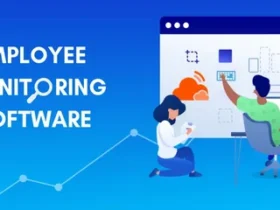Introduction
Have you ever encountered the cryptic code 127.0.0.1:62893 on your computer screen? It might appear intimidating at first glance, but understanding its components can be surprisingly helpful. This seemingly complex code reveals a fundamental concept in the world of computers and networking. Let’s break it down into its simpler parts and explore its significance.
Unpacking the Code: Localhost and Ports
127.0.0.1: This is a special IP address, often referred to as “localhost”. An IP address, short for Internet Protocol address, acts like a unique online identification for devices on a network. However, localhost isn’t an address that points to the internet. Instead, it’s a loopback address that points back to your own computer. Think of it as a way for your programs to talk to themselves internally, like using a walkie-talkie within your own room. Localhost is a reserved address that doesn’t connect to the external world, but allows programs to interact with resources on the same machine.
62893: This is the port number. Ports act like doorways for different applications on your computer to send and receive data. Each service or program typically uses a specific port number. There are thousands of registered ports, and 62893 isn’t one of the most common. However, it’s sometimes used by a software program called Memcached, a caching system that helps websites and applications improve performance. In essence, “127.0.0.1:62893” specifies an attempt to connect to a service running on port 62893 of your own computer (localhost).
Why Use Localhost?
Localhost serves several important purposes:
- Development and Testing: Localhost is a favorite tool for developers. They frequently use it to test their websites and applications before deploying them online. By using localhost, they can work on their projects in a secure and isolated environment without affecting the actual website or application. This is like building a prototype in your garage before constructing a house.
- Running Local Servers: Many software programs can be configured to run as local servers on your computer. By accessing them through localhost, you can interact with these programs as if they were online servers. This is useful for setting up development environments or testing purposes. Imagine having your own personal server within your computer to experiment with.
- Security: Localhost provides a secure way to access certain resources or services on your computer without exposing them to the external internet. It’s like having a private room on your computer where only authorized programs can access specific things.
When You Might See 127.0.0.1:62893
There are a few scenarios where you might encounter this code:
- Error Messages: Sometimes you might see errors mentioning “127.0.0.1:62893” when trying to connect to a program or service running on localhost. This could indicate an issue with the program itself, a firewall blocking the connection, or a conflict with another program using the same port. It’s like encountering a locked door when trying to access your own room – something might be blocking the connection.
- Software Configuration: Certain software programs might allow you to specify the address and port for connections. In such cases, you might see “localhost” or “127.0.0.1” as an option for the address, and “62893” could be the designated port for communication. This is like choosing the specific channel on your walkie-talkie to communicate with a program.
FAQs
Q: Is it safe to access something with “localhost” in the address?
A: Yes, accessing localhost is generally safe because it refers to your own computer. However, caution is still advised when running programs or scripts from unknown sources, even on localhost. Just because it’s your computer doesn’t mean everything you run is safe.
Q: What if I see an error message with 127.0.0.1:62893?
A: There could be several reasons for this error. First, try restarting the program you’re trying to connect to. If the error persists, it could be a firewall issue or a conflict with another program. You might need to check your firewall settings or consult the software’s documentation for troubleshooting steps. It’s like diagnosing why the door to your room is locked.
Conclusion
Understanding “127.0.0.1:62893” goes beyond memorizing the code itself. It sheds light on the concept of localhost, a fundamental element in computer networking. Localhost provides a secure and isolated environment for development, testing, and accessing internal resources. While the specific port number (62893) might not be ubiquitous, the concept of localhost is a cornerstone for many software programs.
The next time you encounter 127.0.0.1:62893, remember it’s simply your computer talking to itself through a designated port. This knowledge can empower you to:
- Troubleshoot errors related to localhost connections, just like figuring out why a door is locked.
- Configure software settings effectively, choosing the right channel for communication.
Appreciate the underlying mechanisms that make your computer work, understanding the internal conversations that happen behind the scenes.






















Leave a Reply